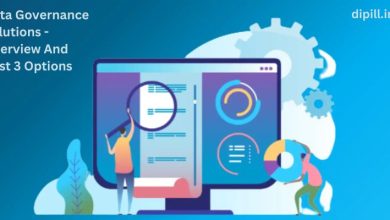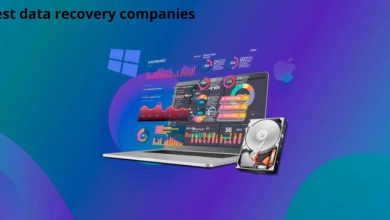Safeguarding Personal Data Privacy in the Digital Age
In an era defined by rapid technological advancements and the pervasive integration of digital platforms into everyday life, the issue of personal data privacy has become increasingly critical. From social media interactions to online shopping habits, individuals generate vast amounts of personal data, often without fully comprehending the implications of its collection, storage, and usage. This article delves into the complexities surrounding personal data privacy in the digital age, examines the challenges faced by individuals and organizations, and explores potential solutions to safeguard privacy rights.
Contents
Understanding Personal Data Privacy

Personal data encompasses any information relating to an identified or identifiable individual. This includes but is not limited to names, addresses, email addresses, social security numbers, biometric data, IP addresses, and online identifiers. Personal data privacy refers to the right of individuals to control the collection, use, and dissemination of their personal information.
In the digital realm, personal data is collected through various channels, including websites, mobile applications, social media platforms, IoT devices, and online services. This data is often utilized by companies for targeted advertising, product customization, market analysis, and other purposes. However, the widespread collection and utilization of personal data raise significant privacy concerns, as individuals may be unaware of how their information is being used or may have limited control over its dissemination.
Challenges to Personal Data Privacy
Data Breaches and Cybersecurity Threats
One of the most pressing challenges to personal data privacy is the risk of data breaches and cybersecurity threats. Hackers and cybercriminals constantly target organizations to gain unauthorized access to sensitive personal data, including financial information, health records, and login credentials. These breaches can have severe consequences for individuals, leading to identity theft, financial fraud, and reputational damage.
Lack of Transparency and Consent
Many individuals are unaware of the extent to which their data is being collected, shared, and monetized by companies. Privacy policies and terms of service agreements are often lengthy, complex documents written in dense legal language, making it difficult for users to understand their rights and responsibilities. Moreover, obtaining meaningful consent for data collection and processing is challenging, as users may be compelled to accept terms and conditions without fully understanding the implications.
Surveillance and Government Intrusion
Government surveillance programs and mass data collection initiatives pose significant threats to personal data privacy. In the name of national security and law enforcement, governments may engage in indiscriminate monitoring of electronic communications, internet activities, and social media interactions. Such surveillance practices erode individual privacy rights and undermine trust in democratic institutions.
Data Monetization and Profiling
The monetization of personal data has become a lucrative business model for many companies, particularly in the tech industry. By analyzing user behavior and preferences, companies can create detailed profiles that are used for targeted advertising and content recommendation. While personalized services can enhance user experience, they also raise concerns about data exploitation and manipulation.
Solutions for Safeguarding Personal Data Privacy

Enhanced Data Protection Regulations
Governments around the world have enacted legislation to strengthen data protection and privacy rights. Regulations such as the European Union’s General Data Protection Regulation (GDPR) and the California Consumer Privacy Act (CCPA) impose strict requirements on organizations regarding the collection, processing, and storage of personal data. These regulations empower individuals with greater control over their information and hold companies accountable for data misuse.
Privacy-Enhancing Technologies
Advancements in technology have led to the development of privacy-enhancing tools and techniques designed to protect personal data. Encryption, anonymization, and blockchain technology can help secure data transmission and storage, reducing the risk of unauthorized access and data breaches. Additionally, privacy-focused web browsers and search engines offer alternatives to mainstream platforms that prioritize user privacy and anonymity.
Empowering Users Through Education and Awareness
Educating users about their privacy rights and providing them with the knowledge and tools to protect their data is essential in fostering a culture of privacy awareness. By promoting digital literacy and responsible online behavior, individuals can make informed decisions about the disclosure of their personal information and take proactive steps to safeguard their privacy.
Ethical Data Practices and Corporate Accountability

Companies have a responsibility to uphold ethical data practices and prioritize user privacy in their operations. This includes implementing transparent data collection policies, obtaining explicit consent for data processing, and adhering to privacy-by-design principles when developing products and services. By demonstrating a commitment to privacy and accountability, organizations can build trust with their customers and differentiate themselves in the marketplace.
Advocacy and Policy Reform
Civil society organizations, privacy advocates, and grassroots movements play a crucial role in advocating for stronger privacy protections and challenging invasive surveillance practices. By mobilizing public support and engaging policymakers, these groups can influence legislative and regulatory initiatives that promote privacy rights and hold governments and corporations accountable for their data practices.
Conclusion
As technology continues to advance and digitalization permeates every aspect of society, safeguarding personal data privacy has never been more critical. Addressing the challenges posed by data breaches, lack of transparency, government surveillance, and data monetization requires a multifaceted approach involving government intervention, technological innovation, user empowerment, corporate responsibility, and advocacy efforts. By prioritizing privacy rights and implementing robust data protection measures, we can create a safer and more secure digital environment where individuals can trust that their personal information is being handled with care and respect for their privacy.
Conclusion: So above is the Safeguarding Personal Data Privacy in the Digital Age article. Hopefully with this article you can help you in life, always follow and read our good articles on the website: Dipill.info




